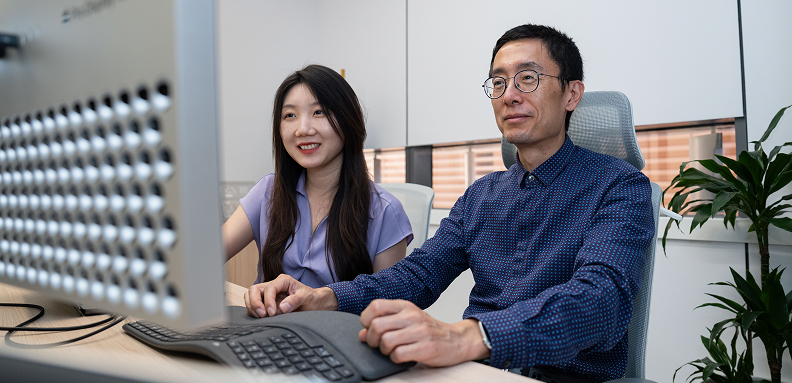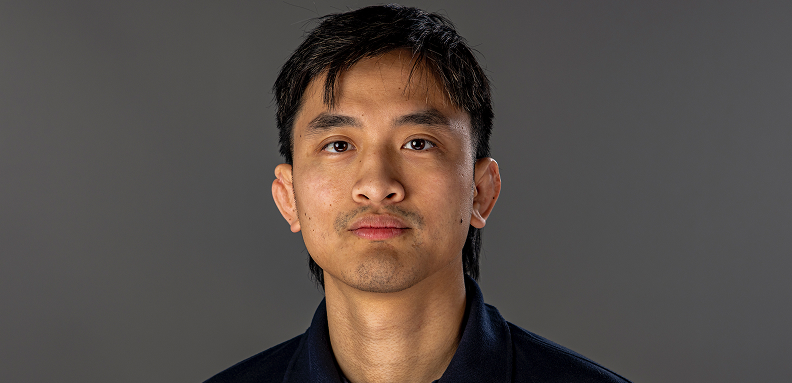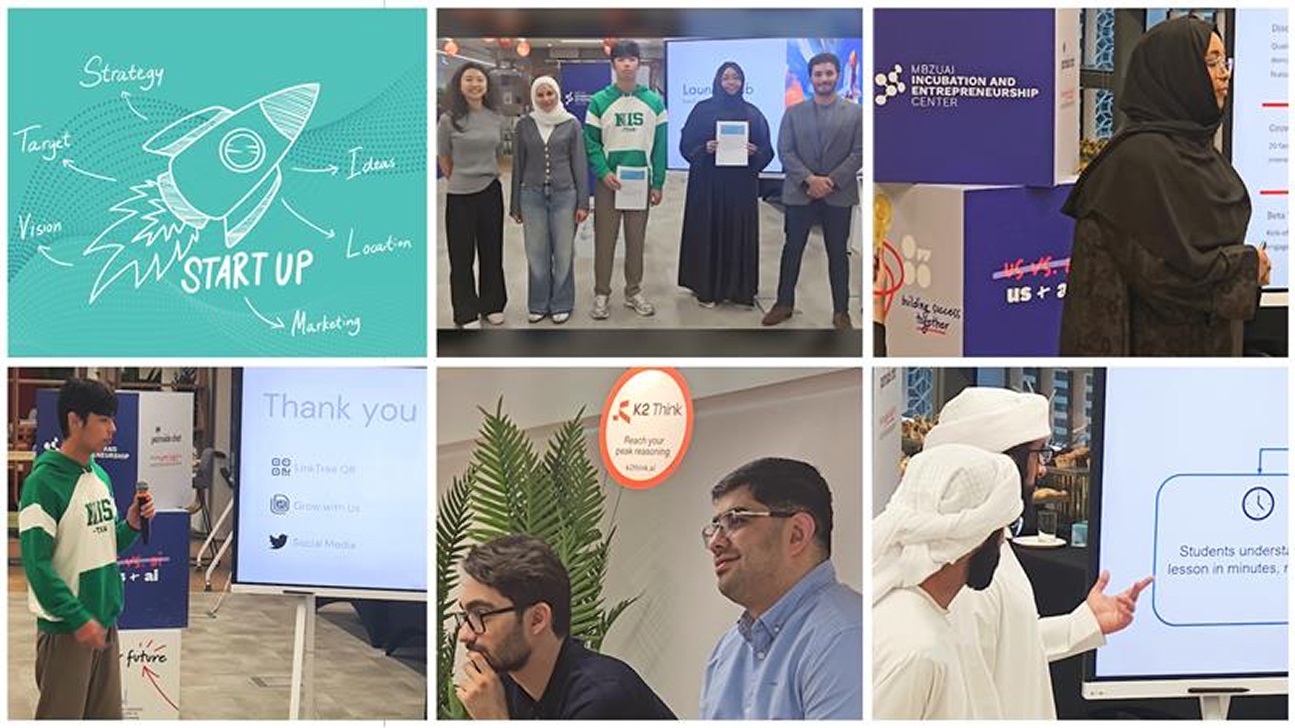Alumni Spotlight: Combining AI and community spirit to advance accessibility in healthcare
Monday, September 23, 2024

For Adnan Khan, life at Mohamed bin Zayed University of AI was about much more than just furthering his academic education.
“MBZUAI was a totally new experience for me — very fulling and very rewarding not only from an academic perspective, but also from a personal perspective,” he says.
“I got the opportunity to meet people from different backgrounds, to interact with administration and work with them as a career services ambassador, work as vice president of the graduate student council and vice president of the MBZUAI sports club, and now be part of the Alumni Advisory Board. So MBZUAI gave me huge experiences and huge learnings that have helped me so much.”
Arriving from his native Pakistan to join the university’s second batch as a master’s student in 2021, Khan’s academic aspirations centered around computer vision — focusing specifically on domain generalization. But it was his community spirit and eagerness to both help and learn from people that truly shaped his Abu Dhabi experience; and his subsequent career path.
“In my opinion, student life is the best life a person can have,” he adds. “You get to learn in so many ways, inside and outside the classroom. And I really feel coming so early to MBZUAI offered something unique. It was kind of a start-up at that point, so I got to be part of that early, diverse, relatively small community, and do so many different things. It felt great to learn so much so quickly, and help others when I could.”
Having graduated from MBZUAI in 2023, he is currently working towards his Ph.D. at Carleton University in Canada, and his people-centric approach has become even more crystallised as he focuses his research on the healthcare industry.
“I am working with accessibility centers and projects for visually impaired people,” he explains. “I want to be a good community member and want to have a broad positive impact on the public. That’s the forward plan, and that what I hope to do through my work here.”
Generating tactile graphics
Khan’s work to enhance the healthcare industry can be traced back to his master’s thesis at MBZUAI, which he completed under the guidance of Dr. Muhammad Haris Khan, assistant professor of computer vision.
“I did my master’s thesis on domain generalization, which is the capability of adaptation of a model from one domain to another,” says Khan.
“If we take a young child and show them a cat outside, for example, and then come back inside and draw the same cat on a piece of paper, then – provided the drawing is good enough – the child would be able to recognize it as the same cat. This is a domain shift — from natural to sketch — but humans are good at understanding these kinds of concepts and can generalize from natural to artificial domains.
“This is not the case with machine learning. Machine learning models suffer a lot when a domain changes. Their performance suffers. This was a core direction of my research — domain generalizations using semi-supervised learning where we have limited amounts of labeled data in our machine learning pipeline, and a lot of unlabeled data.
“Taking this forward, for my Ph.D. I chose to explore domain shifts within healthcare.”
Working at Carleton’s Intelligent Machines Lab, Khan is looking at explainable AI and AI governance, and how fair or unbiased they are, especially when generating data for healthcare.
“The problem is that we have visually impaired subjects who need to understand visual concepts through touch,” he explains. “For example, they need to use digital braille labels or tactile graphics, which can help blind and visually impaired people to sense the objects through touch, whether that’s braille paper or a digital braille display.
“The thing is that these tactile graphics are drawn manually. For example, with softwares like CorelDRAW, it takes time to actually draw these tactile representations and then emboss them on braille. So our approach and our motivation is to automate this process and generate tactile graphics using GenAI models given a natural image.
“This is the domain shift that we were talking about before, but this time the domain shift is really rather huge. It carries the tactile graphics and there are some intricate details that need to be processed by the tactile to qualify it as a good tactile image that can be imposed.
“As far as I know there is no work done in the machine learning community on this, apart from some small case studies on text – not images. And there is no such data set available for machine learning models. So our core motivation is to build the first data set, and then train some models to get this task done. Which I think will be amazingly helpful to blind and visually impaired people.”
Building bridges
Looking to the future, Khan hopes to stay in academia as both a teacher and a learner — all the while staying true to his roots as a community champion.
“I would love to be in academia to teach students and learn from students, and at the same time be part of some community building or social work,” he says. “I love to be in any environment where I can learn new things, and my long-term plan is to return to the UAE. Of course, I have affection for the UAE because of my time at MBZUAI, but also the market is growing and has truly inspiring AI plans and strategies.”
In the meantime, Khan is still finding ways to be of benefit to MBZUAI students by serving on the Alumni Advisory Board — a role he believes he can bring something unique to given his relocation to Canada.
“Joining the Alumni Advisory Board was an opportunity for me to do something impactful,” he says. “When alumni come together, they provide a remarkable support system for students. When I joined the university there were no alumni yet, and I had so many questions that alumni would have been able to help me with. Thankfully we had the administrative team and student affairs who were fantastic, but sometimes a student needs to talk to somebody who has been through the experience.
“I also believe I can build a bridge between MBZUAI and institutions in other parts of the world. I’m in Canada and my motivation is to have an open channel between Carleton and MBZUAI, so that we can make best use of each other’s research labs, and move students to and from — it would be a great active collaboration.
“For MBZUAI students to have an internship here for a few months — or at other universities around the world — would be a really positive experience and could really help advance their research in the UAE. This is why I’m on the learning and engagement committee; to help bring these researchers’ ideas to life.”
Whether or not Khan’s plan comes to fruition, only time will tell. Either way, there’s little doubt that he will continue to find new ways to use his research, his network and his experiences to help people around the world.
Related
Not just another deck: how MBZUAI’s okkslides is redefining executive communication
The MBZUAI startup is turning messy research and organizational context into decision-ready narratives with a human-in-the-loop AI.....
Read MoreAlumni Spotlight: driving AI transformation at a financial giant
MBZUAI alumnus Steven Hoang explains how he is using his master’s in machine learning to help shape.....
- finance ,
- student ,
- Alumni Spotlight ,
- alumni ,
- machine learning ,
MBZUAI's Launch Lab equips alumni and students with practical startup tools
The six-week pilot program brought alumni and students together to turn early startup ideas into tangible ventures.
- launch lab ,
- alumni relations ,
- startups ,
- alumni ,
- entrepreneurship ,


